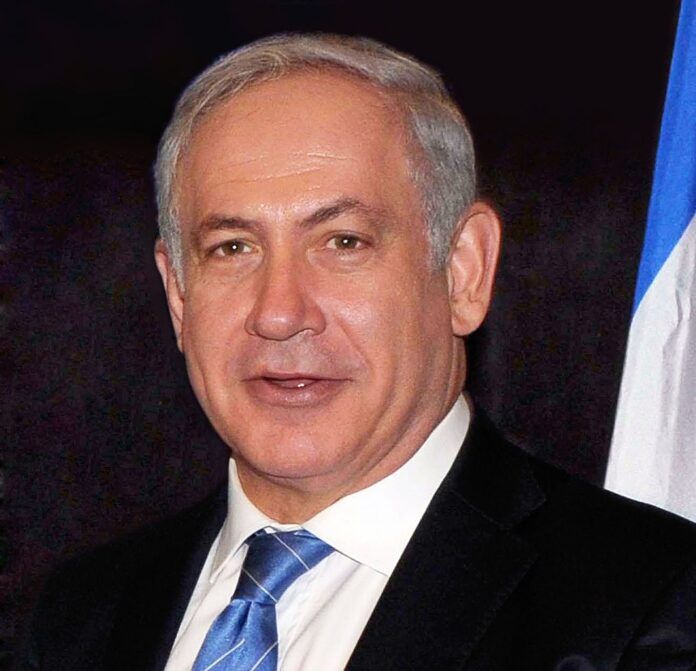Israeli Prime Minister Netanyahu criticizes Bided’s three-phase Gaza truce plan as “partial,” focusing on hostage return and Hamas elimination
Israeli Prime Minister Benjamin Netanyahu criticized President Joe Biden’s proposed Gaza truce plan, calling it “partial” and incomplete. Biden presented the plan on Friday, outlining a three-phase approach aimed at ending the conflict, freeing hostages, and reconstructing Gaza without Hamas in power.
Netanyahu, through a government spokesman, emphasized that the war would only pause for the return of hostages. “The outline that President Biden presented is partial,” Netanyahu said. “The war will be stopped to return the hostages,” he added, after which discussions would continue on eliminating Hamas.
Netanyahu’s office issued a separate statement refuting claims that Israel agreed to a ceasefire without meeting its conditions. “Claims that we have agreed to a ceasefire without our conditions being met are incorrect,” Netanyahu told a parliamentary committee.
The prime minister’s far-right coalition partners criticized Biden’s plan. National Security Minister Itamar Ben Gvir stated that the proposal would end the war without achieving the cabinet’s objective of destroying Hamas. Ben Gvir warned that his party would leave the government if Netanyahu signed an “irresponsible deal.”
Finance Minister Bezalel Smotrich echoed this sentiment, stating that if the government adopted Biden’s proposal, his party would not participate and would seek to replace the current leadership. “If, heaven forbid, the government decides to adopt this proposal of surrender, we will not be part of it and we will act to replace the failed leadership with new leadership,” Smotrich said.
Opposition leader Yair Lapid, a centrist former premier, urged the government to consider Biden’s speech seriously. Lapid pledged to support Netanyahu if the far-right coalition partners left the government, underscoring the importance of Biden’s proposal.
The Gaza war began after Hamas’s unprecedented attack on southern Israel on October 7, resulting in the deaths of 1,190 people, mostly civilians, according to Israeli official figures. Hamas also took approximately 250 hostages, with 120 still in Gaza, including 37 the Israeli army believes are dead.
In response, Israeli bombardments and ground offensives have killed at least 36,479 Palestinians, mostly civilians, according to Gaza’s health ministry. Mediation efforts by the US, Egypt, and Qatar have stalled since a one-week truce in November, during which dozens of hostages were freed in exchange for Palestinian prisoners, and humanitarian aid surged into Gaza.
The conflict has also seen regular cross-border fire between Israel and Lebanese Hamas ally Hezbollah. Smotrich suggested that the Israeli military should invade Lebanon and create a security zone, similar to the one maintained until 2000. He proposed a ground invasion, occupation of territory, and the displacement of Hezbollah terrorists and Lebanese civilians to the Litani River, about 30 kilometres from the UN-patrolled border.
The complex situation continues to evolve, with international and local efforts to mediate a resolution facing significant challenges.
Analysis
Netanyahu’s rejection of Biden’s plan highlights the deep-seated issues and differing priorities in resolving the Gaza conflict. Netanyahu’s emphasis on eliminating Hamas underscores Israel’s security concerns and its stance on long-term peace in the region.
Politically, Netanyahu’s criticism and the internal dissent within his coalition reflect the broader ideological divide in Israeli politics. The far-right coalition partners’ opposition to any plan perceived as compromising Israel’s security objectives points to the challenges Netanyahu faces in maintaining political stability.
Economically, the ongoing conflict and the destruction in Gaza pose significant challenges for reconstruction and humanitarian efforts. The proposed plan’s focus on rebuilding Gaza without Hamas in power aligns with international calls for a sustainable and peaceful resolution, though its feasibility remains uncertain given the current hostilities.
Sociologically, the conflict’s impact on civilians on both sides underscores the human cost of prolonged violence. The high casualty figures and displacement of populations highlight the urgent need for effective mediation and conflict resolution strategies.
From a governance perspective, the situation reveals the complexities of international diplomacy and the challenges of achieving consensus among diverse stakeholders. The stalled mediation efforts reflect the difficulties in balancing immediate humanitarian needs with long-term political solutions.
Gender and minority perspectives also play a role, as conflicts disproportionately affect vulnerable populations, including women and children. Ensuring their protection and addressing their needs in any resolution plan is crucial for sustainable peace.
In conclusion, the Gaza conflict’s resolution requires nuanced approaches that consider security, political, economic, and humanitarian dimensions. Netanyahu’s stance and the internal political dynamics in Israel add layers of complexity to international mediation efforts, underscoring the need for comprehensive and inclusive strategies to achieve lasting peace.
